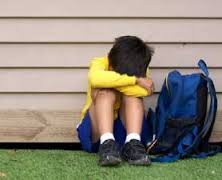What is the definition of stress? being overwhelmed with different things
What can cause stress in C
A stressed child is unable to prioritise and if unchecked will lead to a fragile, anxious adult. When some children are stressed they cry, become aggressive, talk back or become irritable. Others may behave well but become nervous, fearful, or panicky. Stress can affect children’s physical health as well. Asthma, hay fever, migraine headache and gastrointestinal illnesses like colitis, irritable bowel syndrome and peptic ulcer can be exacerbated by stressful situations.
How can parents help?
1) Limit choices of extracurricular activities – involvement in extracurricular activities should never mean being overwhelmed. Depending on the age of the child limit the activity choices to one or two outside of regular school workload.
2) Limit access to technology – Previously a phone call could only happen if you got a dial tone and that was if you were lucky enough to have a landline. Now with the mobile phone, there are several options to communicate such as the internet, blackberry, You tube, Whatsapp, Viber etc. What they offer is various instant and continuous ways to be in touch. Children also get this bad habit of being addicted to their smart devices from their parents!
3) Rest – 8 hours of sleep or more is necessary, no ifs or buts about it. Good rest is important for adequate growth in children
4) Nutrition – Kids need healthy and well balanced diets to help them grow well. A child who is overloaded with sugar and empty calories will not perform at his or her best.
5) Perseverance – As early as possible children should learn that there is no short cut to success. You have to work to get the outcome you desire. When your child is learning to walk, when they fall down you would never imagine telling the child not to bother trying to walk again. It is the same way that children must learn that setbacks are just that – setbacks and you are meant to try again.
6) Identify their strengths – Children are like sponges and can learn almost anything if taught properly. However there are strengths that children do have and its helpful to identify these and then work on them. Children thrive when they are doing well especially at something that they enjoy or are passionate about.
7) Have a roadmap – Having a family and personal roadmap for each child is helpful for both the child and the parent. Working towards a goal and an outcome makes it easier for all involved. Children like structure (even if they act like the don’t) and its easier for them to operate when they know what their goals are. As a parent what is your goal for your child? How do you plan to achieve them?
8) Allow downtime – No matter how busy their schedule, children of all ages need time to play and relax. Children use play to learn about their world, explore ideas and soothe themselves. A child should not always have a busy calendar and schedule of events, there should be quiet downtime.
The mian thing is that parents and caregivers must help Children manage their lives, Children nowadays are too busy and if not managed properly has t
photo source: news.discovery


